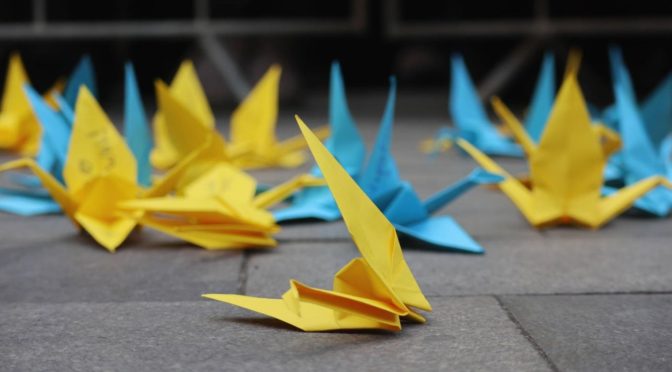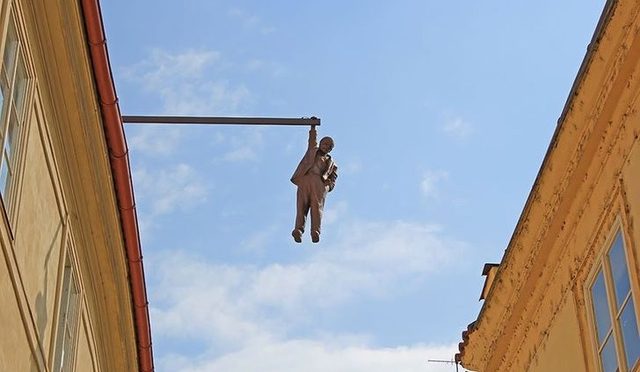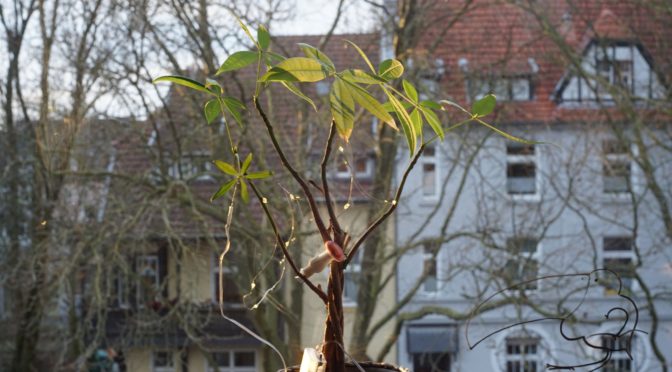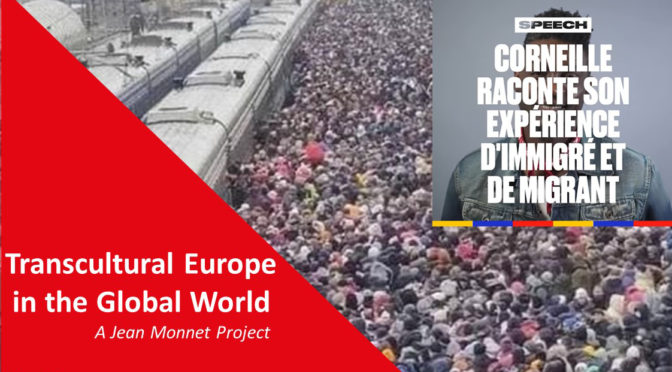
Belarus and the Russian Invasion in Ukraine
2nd session of “CEFRES Webinars for Ukraine” organized in partnership with the GDR Connaissance de l’Europe médiane
Date: Wednesday 20th April 2022, 12:00-13:30
Location: online (to register, write at the address cefres@cefres.cz)
Language: English
Convenor and moderation: Ronan Hervouet (CEFRES / University of Bordeaux)
With the participation of
- Milàn Czerny, Belarus Observatory, Oxford University
Belarus, Still a Sovereign State?
- Yauheni Kryzhanouski, Sciences Po Strasbourg
The Ukrainian Conflict Seen by the Belarusian Society
- Anna Talarionok, Charles University
Belarusian Exiles Caught in the Ukrainian Conflict
You can download the complete presentation of this session here.
Pokračování textu Belarus and the Russian Invasion in Ukraine →

Psychoanalýza v Československu (1918 – 1939) : Freudovy teorie mezi českým a slovenským uměním, literaturou, filozofií a politikou
První blok semináře “Rethinking Psychoanalysis in Central Europe: Interdisciplinary and transnational perspectives“
Kdy: úterý 19. dubna 2022, od 16:00 do 18:00
Kde: knihovna CEFRESu nebo “online”
Jazyk: anglicky
Organizátor: Agnieszka Sobolewska (University of Warsaw/Sorbonne University/CEFRES)
Hostující řečník : Adam Bzoch (Slovak Academy of Sciences)
Diskutující :
- Paweł Rodak (University of Warsaw)
- Jean-François Laplénie (Sorbonne University)

Home beyond species. More-than-human dwelling in the age of crises
Launch of the 2022–2024 Tandem project, supported by CEFRES, CNRS and the Czech Academy of Sciences
When: Tuesday 19 April 2022, 1–3 pm
Where: CEFRES and online (to register please contact claire(@)cefres.cz)
Language: English
Convenors (2022–2024 Tandem team):
Petr Gibas (Institute of Sociology, Czech Academy of Sciences / CEFRES),
Chloé Mondémé (Triangle CNRS / CEFRES)
With a key-note speech by Birgit Müller (EHESS):
Toxic Worlds and the Power of Denial
Abstract of the key-note
Bureaucrats and politicians have long turned a blind eye to the accumulation of small toxic doses in soils, groundwater, oceans and in bodies. Toxic waste from industrial processes have been tolerated as a price to pay for living “progress” and “growth. Anthropologists are interested in the capacity of humans to render invisible and deny the toxic evidence, and in the stubborn refusal to observe and understand the real material consequences of our economic and technical system. Denial makes the invisible traces and effects of the catastrophe disappear. A powerful weapon, it allows to normalize a situation in a way that reproduces rational logic while producing a deep abandonment to the evil of non-reflection. To speak of pollution is to recognize its immense power to render a hitherto familiar space uninhabitable. Pokračování textu Tandem Kick-off: Home beyond species →
Towards a Common History of Europe? Crossed Perspectives in the Context of the War in Ukraine
An international conference organized by the French Embassy in the Czech Republic and the French Research Center in Humanities and Social Sciences (CEFRES), within the framework of the French Presidency of the Council of the European Union.
When: Thursday, April 14, 2022, 2:30-6 pm
Where: French Embassy in the Czech Republic, Velkopřevorské nám. 2, 118 01 Malá Strana, Prague
Language: English
To assist in person: admission on registration, subject to availability of places: biblio.cefres@gmail.com
To assist online: us02web.zoom.us/j/85072557320
Information: jerome.heurtaux@cefres.cz
Abstract:
In his press conference on December 9, 2021, on the occasion of the presentation of the priorities of the French Presidency of the European Union in 2022, the French President Emmanuel Macron proposed to “resume (…) major work on Europe’s history. (…),” further specifying that ” European history is not simply the sum of 27 national histories. There is a coherence, links that everyone feels, but which cannot be fully apprehended yet.” It is therefore a question of “an independent historiographical framework”, which could allow to ” build an academic framework where historians from across Europe can continue to carry out independent historical work, based on traces, evidence and controversies (…) and to forge a history and historiography of our Europe and a global history of Europe”. Pokračování textu Towards a Common History of Europe? Crossed Perspectives in the Context of the War in Ukraine →

Transcultural Europe Narrated: Testimonies, Interviews, Life narratives in Humanities, Social and Political Sciences
Workshop
Date: Thursday, April 7th, 2022
Location: CEFRES Library, Na Florenci 1420, Praha 1
Language: English and French
Organizers:
- Chiara Mengozzi, Charles University
- Ondřej Švec, Charles University
Workshop organized by the Faculty of Arts, Charles University, with the collaboration of CEFRES.
Pokračování textu Transcultural Europe in the Global World →

Affects, Everyday Writing Practices, and the Origins of Self-Analysis. The Case of Julian Ochorowicz and Sigmund Freud.
4th 2022 Session of CEFRES Seminar
When: Wednesday 30 March 2022, 4:30 pm
Where: At CEFRES and online (to register please contact claire(@)cefres.cz)
Language: English
Host: Agnieszka Sobolewska (Warsaw University/Sorbonne University/CEFRES)
Abstract:
In what ways everyday writing practices (such as keeping a journal or writing letters) are related to science in the second half of the nineteenth century? How the differences between self-reflective techniques (such as introspection and self-analysis) are reflected in the generic divergencies between journal and epistolary practices? During this presentation, I will take a closer look at the important shift in the nineteenth century psycho-medical literature which was closely related to the question of psychological introspection and the emergence of psychoanalytic self-analysis in the late 1890s. This shift can be closely observed in life writing of the nineteenth-century psychologists, physicians, and future psychoanalysts, and was crucial for future understanding of the self in the twentieth century.
Pokračování textu Affects, Everyday Writing Practices, and the Origins of Self-Analysis →





